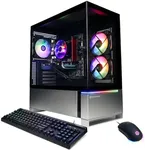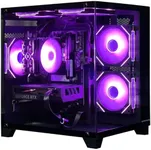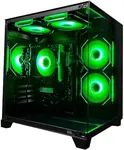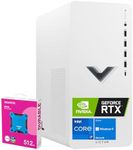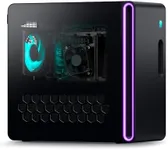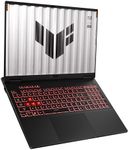Buying Guide for the Best Cheap Gaming Pc
Choosing the right gaming PC can be a daunting task, especially if you're on a budget. The key is to balance performance with cost, ensuring you get the best value for your money. To make an informed decision, you need to understand the key specifications that affect gaming performance. Here’s a breakdown of the most important specs to consider and how to choose the right ones for your needs.Processor (CPU)The CPU is the brain of your computer and is crucial for overall performance. For gaming, a multi-core processor with a high clock speed is important. CPUs are often divided into entry-level, mid-range, and high-end. Entry-level CPUs are suitable for less demanding games and basic tasks. Mid-range CPUs offer a good balance for most modern games, while high-end CPUs are for those who want the best performance for the latest and most demanding titles. If you play games that are CPU-intensive or plan to stream, a mid-range to high-end CPU is recommended.
Graphics Card (GPU)The GPU is responsible for rendering images, videos, and animations, making it one of the most critical components for gaming. GPUs are categorized into entry-level, mid-range, and high-end. Entry-level GPUs can handle older or less demanding games at lower settings. Mid-range GPUs are suitable for most modern games at medium to high settings. High-end GPUs are for those who want to play the latest games at the highest settings with smooth performance. Choose a GPU based on the types of games you play and the resolution you want to play at.
RAM (Memory)RAM is where your computer stores data that it needs to access quickly. For gaming, having enough RAM is essential for smooth performance. Most gaming PCs should have at least 8GB of RAM, which is sufficient for many games. However, 16GB is becoming the standard for modern gaming, providing better performance and future-proofing. If you multitask or use memory-intensive applications alongside gaming, consider opting for 16GB or more.
StorageStorage affects how much data you can store and how quickly your system can access it. There are two main types: Hard Disk Drives (HDDs) and Solid State Drives (SSDs). HDDs are cheaper and offer more storage space, but are slower. SSDs are faster, which means quicker load times for games and the operating system, but they are more expensive per gigabyte. A common setup is to use a smaller SSD for the operating system and frequently played games, and a larger HDD for additional storage. Choose based on your storage needs and budget.
MotherboardThe motherboard is the main circuit board that connects all components of your PC. It determines what hardware you can use and how much you can upgrade in the future. When choosing a motherboard, ensure it is compatible with your CPU and has enough slots for RAM, GPUs, and other peripherals. Consider future-proofing by selecting a motherboard that supports the latest standards and has room for expansion.
Power Supply Unit (PSU)The PSU provides power to all the components in your PC. It’s important to choose a reliable PSU with enough wattage to support your system, especially if you plan to upgrade components in the future. PSUs are rated by their wattage and efficiency. A higher wattage PSU can support more powerful components, while higher efficiency ratings (like 80 Plus Bronze, Silver, Gold) mean better energy use and reliability. Calculate the total power consumption of your components and choose a PSU that provides a bit more than that.
Cooling SystemGaming PCs generate a lot of heat, so a good cooling system is essential to maintain performance and longevity. There are air coolers and liquid coolers. Air coolers are generally cheaper and easier to install, suitable for most users. Liquid coolers offer better cooling performance and are quieter but are more expensive and complex to install. Choose based on your performance needs and whether you plan to overclock your CPU or GPU.
CaseThe case houses all your components and affects airflow and cooling. Cases come in various sizes: Full Tower, Mid Tower, and Mini Tower. Full Towers offer the most space and are good for high-end builds with multiple GPUs and extensive cooling systems. Mid Towers are the most common and offer a good balance of space and size. Mini Towers are compact and suitable for smaller builds but may have limited space for upgrades. Choose a case that fits your components and has good airflow to keep everything cool.
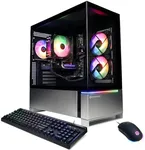

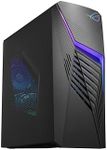

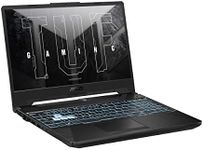

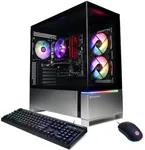

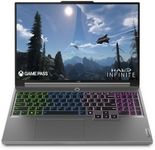

![ACEMAGICIAN [Gaming PC] Mini PC Gam](https://images-proxy.bestreviews.guide/YPVayeiYO-sUXDQYL0YyCM79lDE=/0x150/https://m.media-amazon.com/images/I/41wZRhNxLdL._AC_CX679_.jpg)

